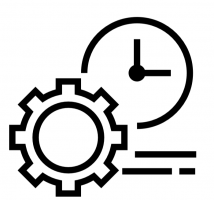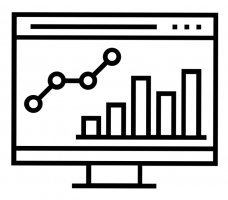Blockchain is esentially a distributed database of records, shared across a public or a private computer network, that can be maintained without involvement of the trusted third party.
Decentralized nodes can reach agreement on the state of the ledger without the trusted third authority via a so-called consensus mechanism.
Each node in a network has the whole copy of the ledger (no single point of failure) and every piece of information is mathematically encrypted and tamper-proof.
Smart contracts facilitate the exchange of anything of value (property, content, health records, certificates, …). These are small programs that automatically self-execute, if indicated conditions are met.
Have you considered the business value of Blockchain?
Blockchain enables transactions between two parties without the intermediation of the third party. This potentially leads to disruption of industries that heavily rely on intermediaries, such as banking, insurance, real estate, supply chain, and healthcare, among others.
First, Blockchain enables a cheaper verification of information about past transactions and their attributes (the cost of verification). Second, it makes centralized intermediaries or administrative effort of record keeping obsolete, and therefore reduces the cost of networking.
Elimination of intermediaries gives rise to true peer-to-peer business models and enables the creation of self-sovereign identity. Furthermore, convergence with other emerging technologies – such as Internet of Things and AI – leads to numerous entirely new business models.
What can we do for you?
We are here to help you, whether you are considering to engage with Blockchain within your organization, get insights from the market, or understand how the technology works and how it will affect the economy.



